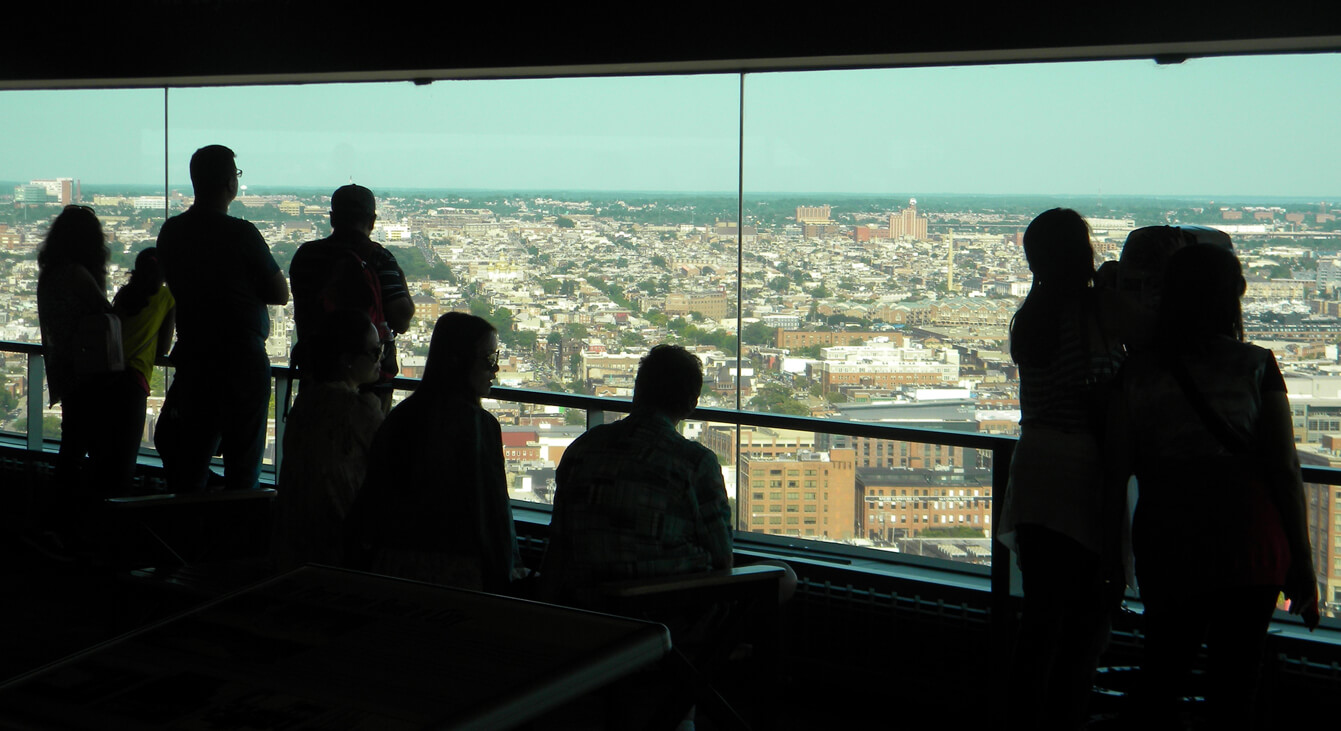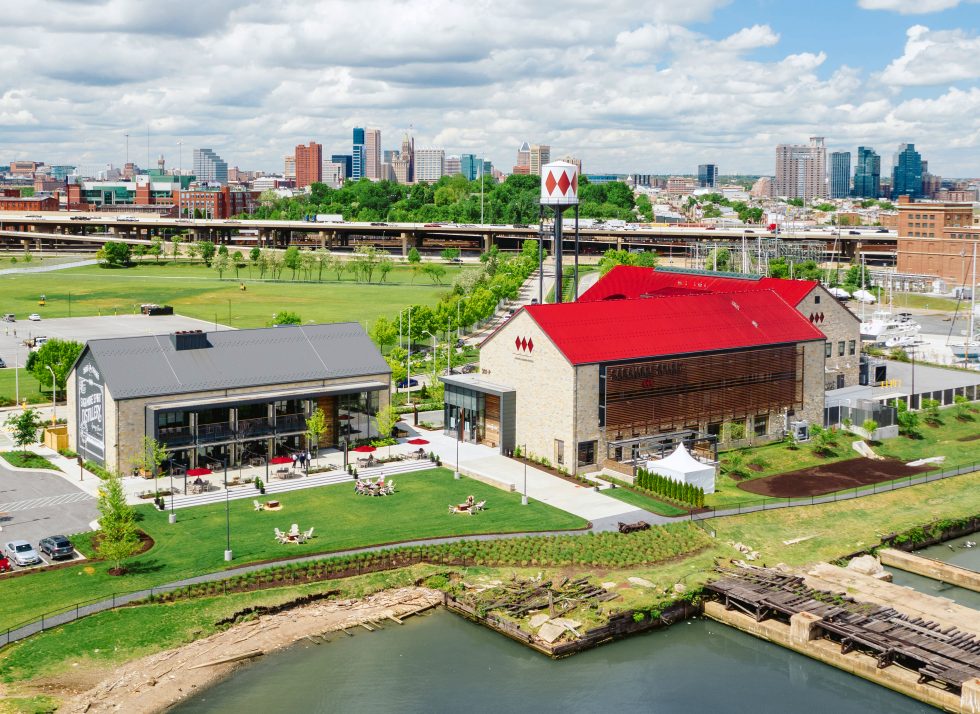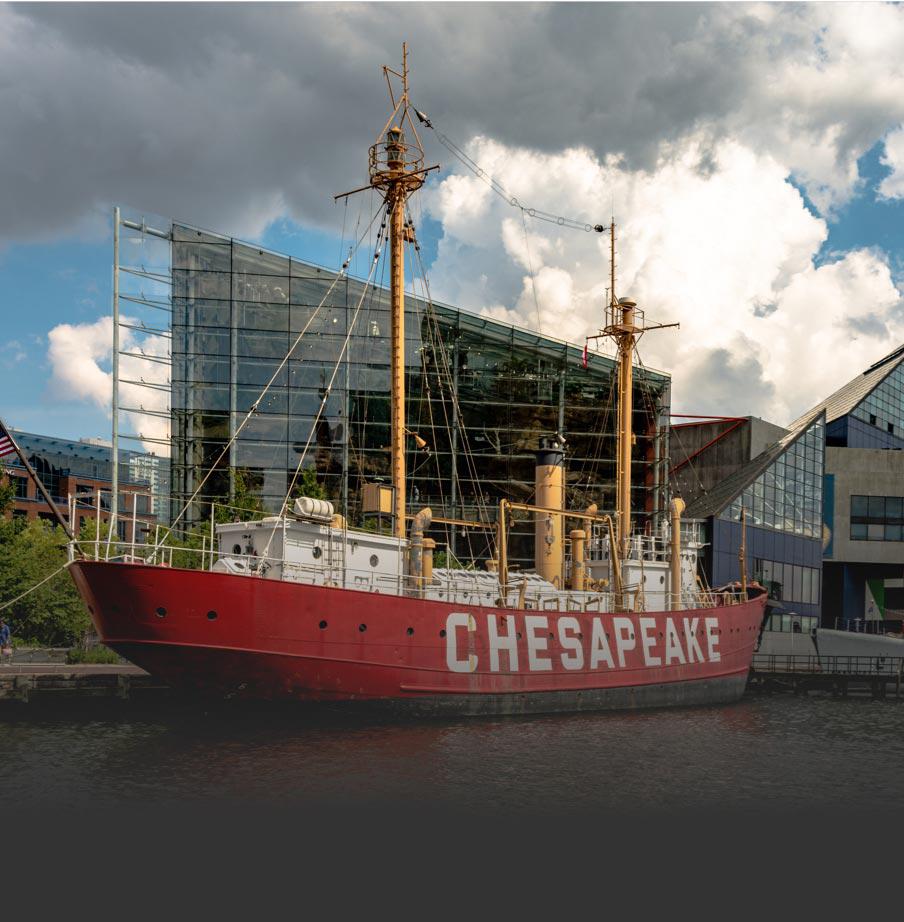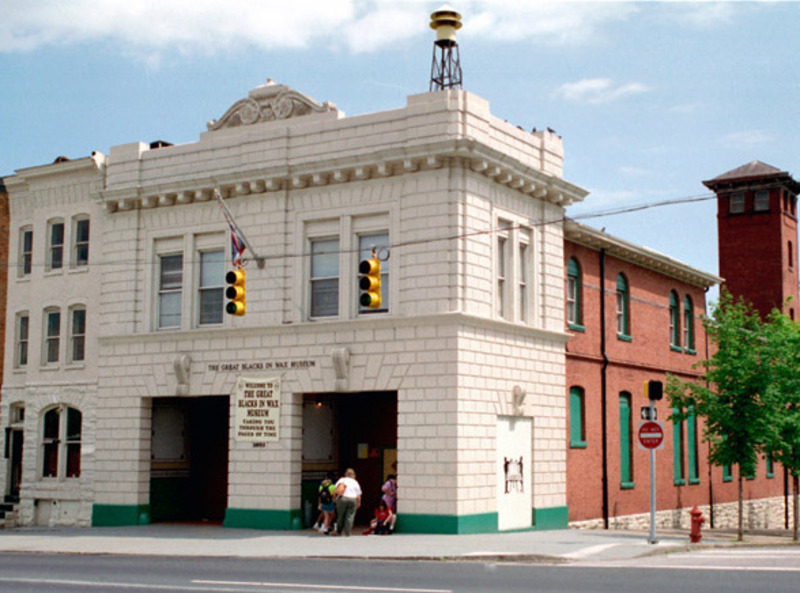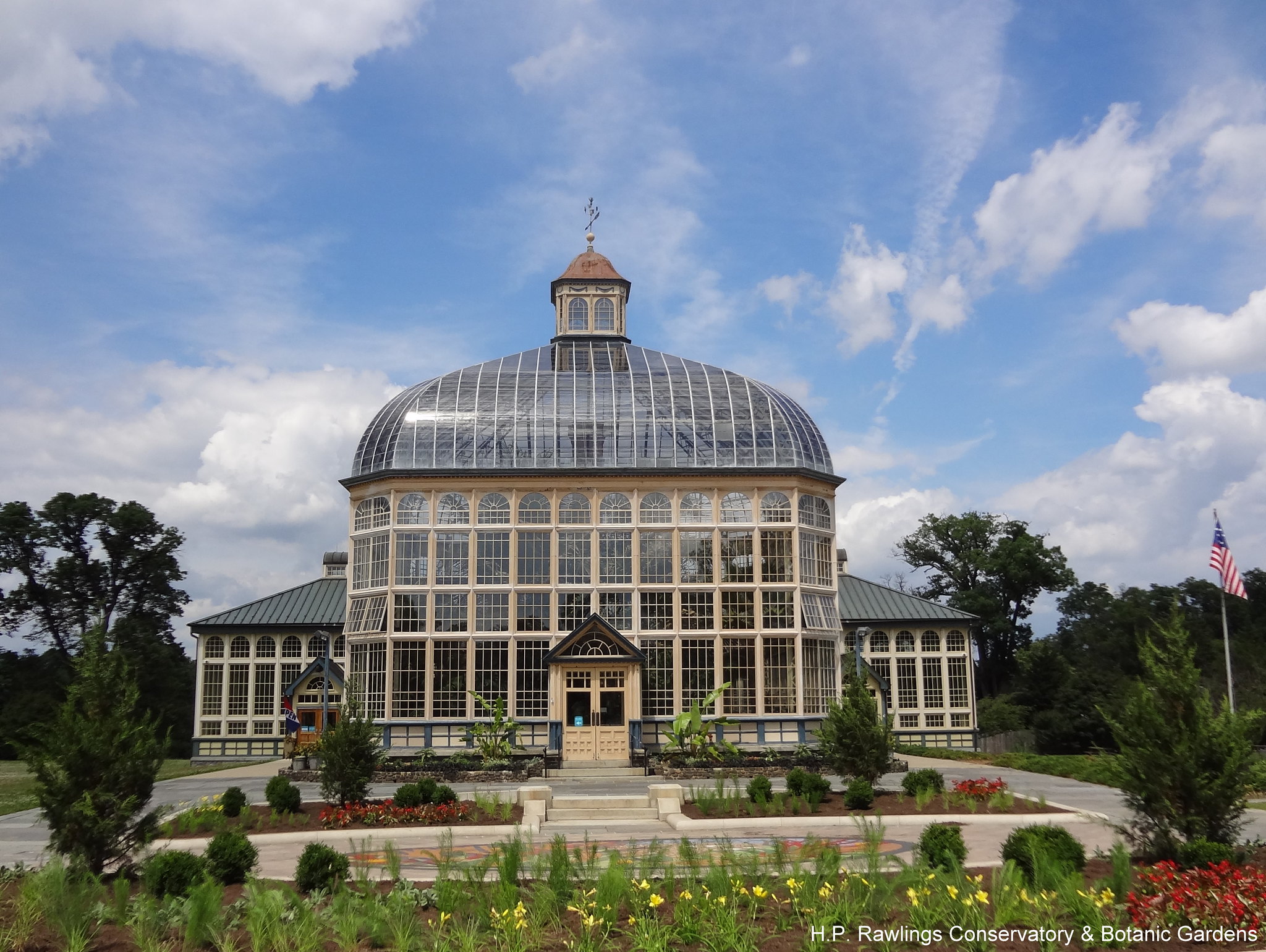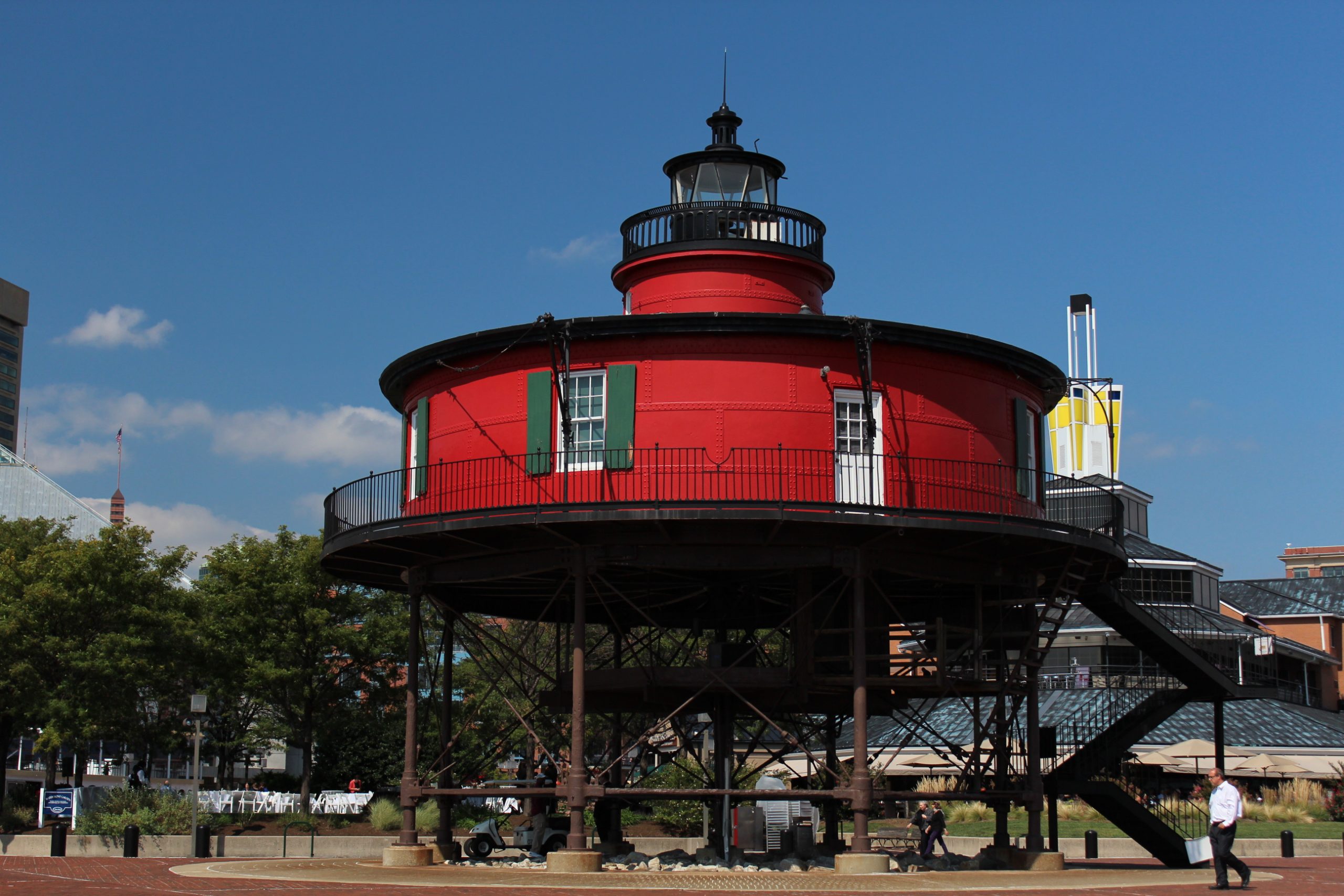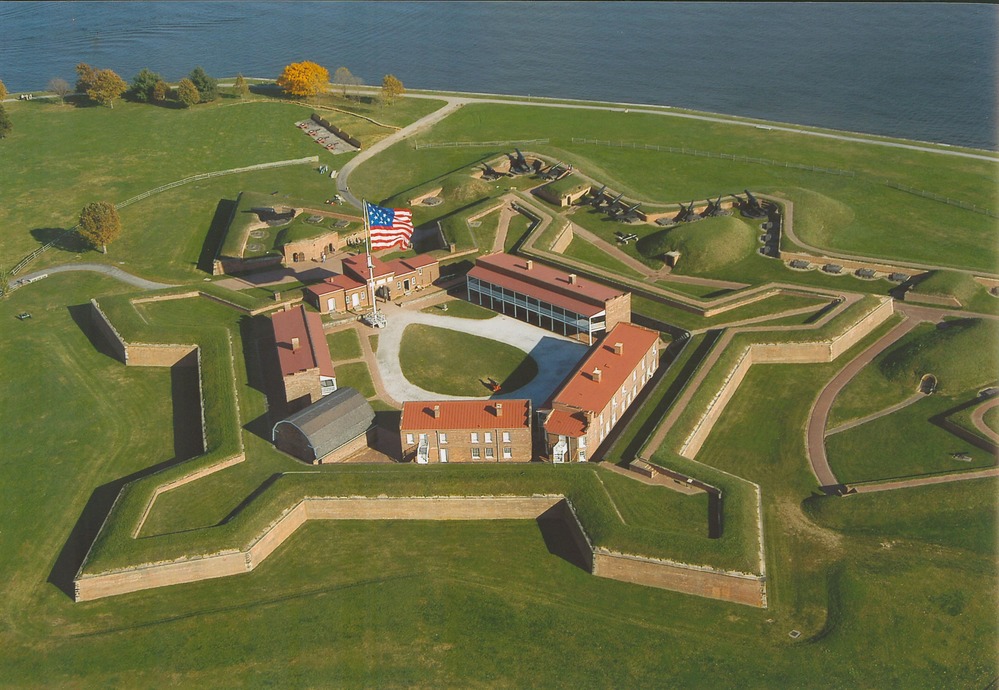
Whenever you hear the National Anthem of the United States of America, you’re listening to a poem about Baltimore.
The rockets red glare. The bombs bursting in air. These words, penned by Francis Scott Key, recall a moment in the War of 1812 that saw Fort McHenry fend off a potentially devastating attack from the British that could have spelt doom for America. And that’s not hyperbole: just one month earlier the British captured Washington DC and burned down the White House.
On September 13th, 1814 the British set their sights on Baltimore, bombarding Fort McHenry for 25 straight hours. Although heavily outnumbered, Baltimore stood strong. When the fog of war cleared the “broad stripes and bright stars” of the American Flag continued waving proudly over the fort.
Today, Fort McHenry is a National Monument and Historic Shrine that provides an eye-opening glimpse into our country’s history, with a waterfront walking path that provide panoramic views of the Patapsco River.
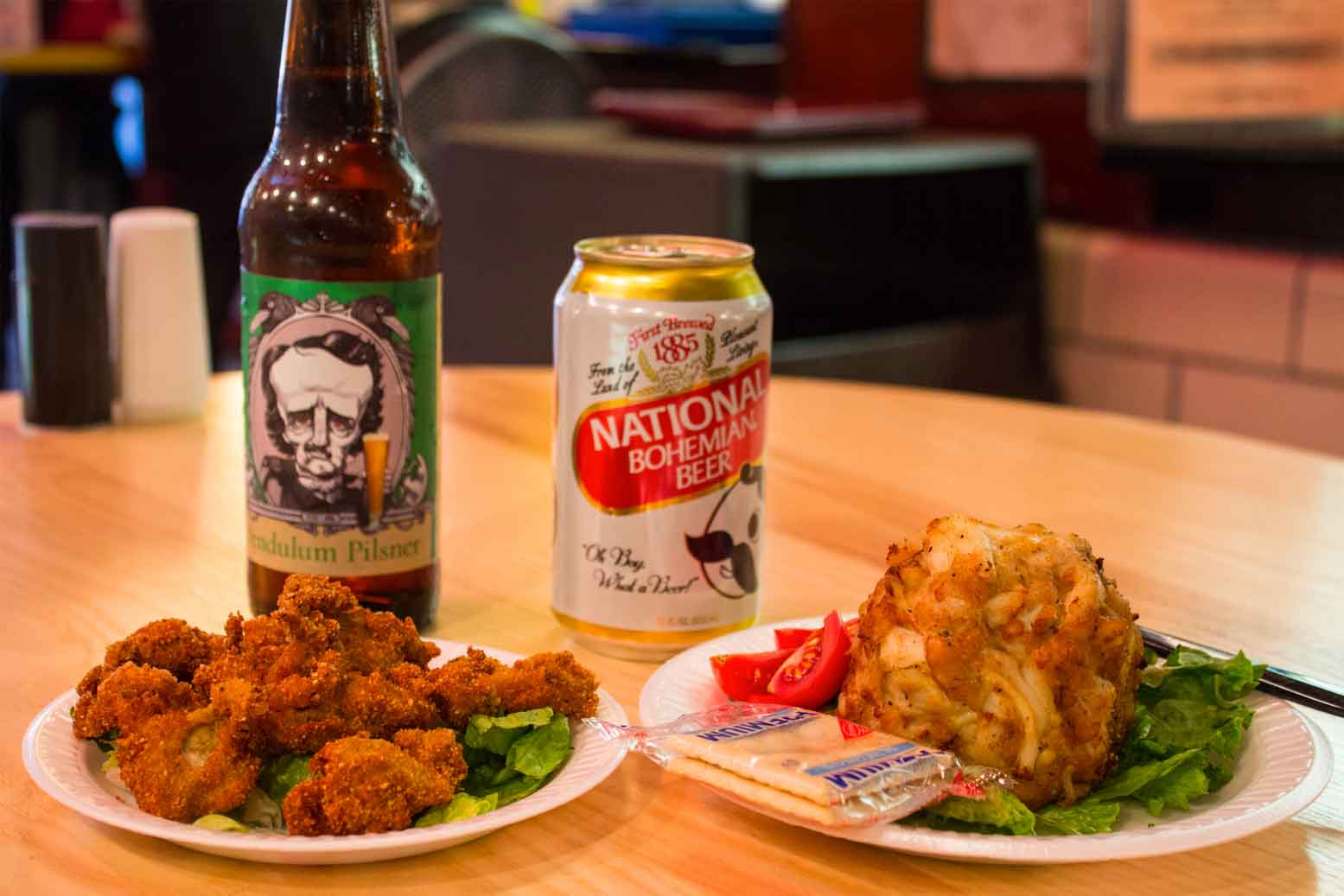
Blue crabs aren’t just a delicacy in Maryland, they’re a way of life. Each year, more blue crabs are caught in the Chesapeake Bay than anywhere else in the world. Marylanders aren’t shy with their pride: you’ll see the crustaceans plastered everywhere in the state, from bumper stickers and billboards to t-shirts, hoodies, and accessories.
While steamed crabs are popular for backyard barbecues and family gatherings (see our Maryland Bucket List), in the city, crabcakes are the more popular pick.
Traditionalists will find the best crabcakes in Baltimore at Faidley Seafood, founded in 1886 and located in the World Famous Lexington Market. But Baltimore is a culinary destination- visit a small neighborhood restaurant, try their take on Crabcakes, and find your own favorite.
Some of our favorite crabcakes in Baltimore include:
- Smoked Crabcake at Pierpoint restaurant in Fell’s Point
- Redditors: thanks in advance for your suggestions!
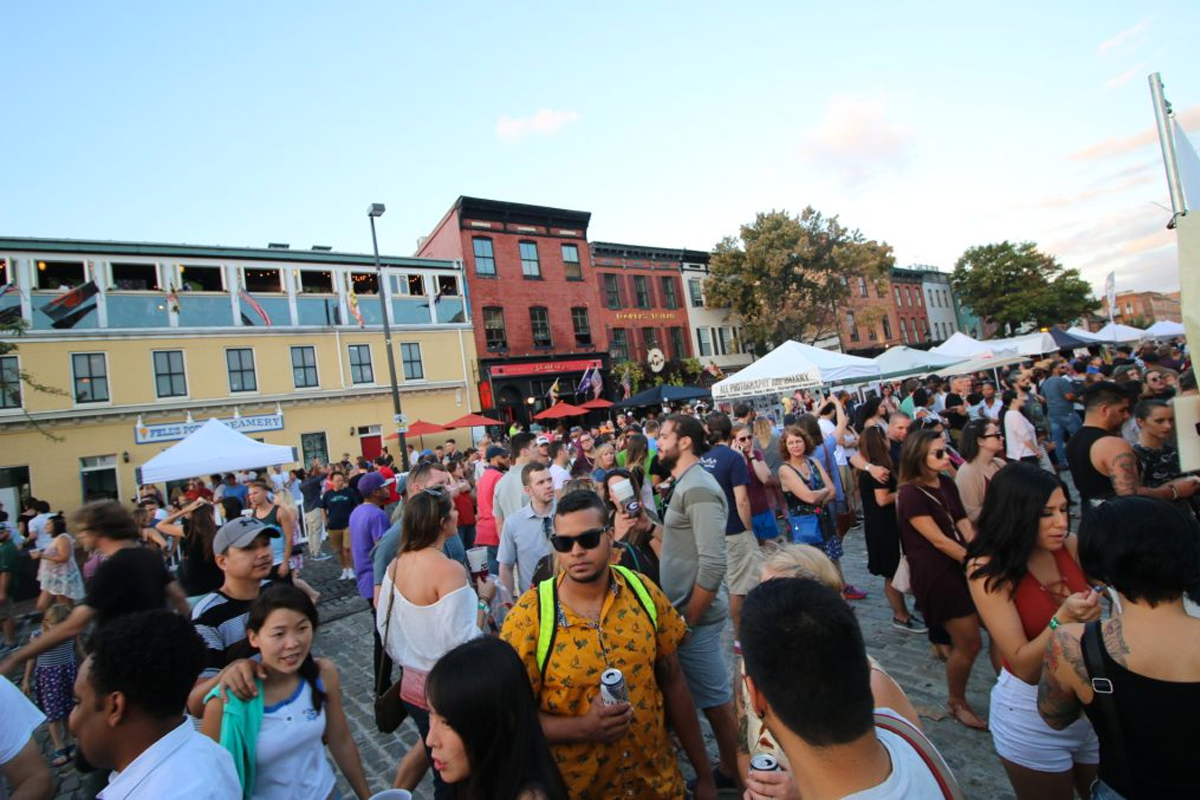
This historic waterfront community offers the quintessential Baltimore experience and should not be missed.
It began as a ship-building community in the 1700s (it predates Baltimore), was home to a fleet of government-sanctioned pirates in the 1800s (Privateers), and its reputation for serving the appetites of sailors and citizens survives today. The cobblestone streets of Fell’s Point are lined with more independently owned bars and pubs than any other place in the United States per square mile- one of which served Edgar Allan Poe his last drink.
Take a leisurely stroll along Thames Street and find century-old hidden treasures, from the quaint family grave of its founders to the relics of dive bars that proudly protested prohibition. When your feet get tired, find respite in one of the dozens of shops and eateries: there’s something for everyone in Fell’s Point.
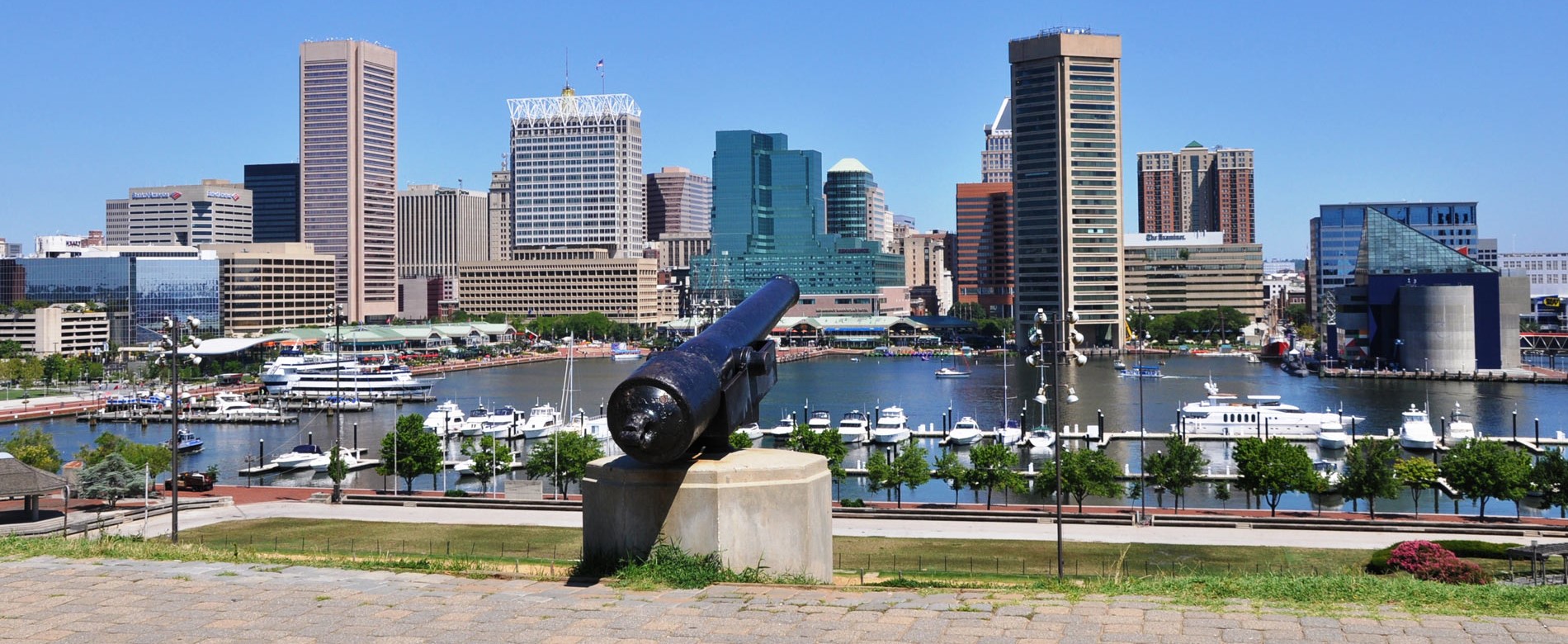
The towering banks of Federal Hill offer visitors the most spectacular and picturesque view of Baltimore in the entire city. The American flag-topped hill overlooks the entirety of Baltimore’s harbor, which made it an excellent outpost for the merchants and military men of centuries past.
Below you’ll see the Inner Harbor, part of Baltimore’s Waterfront Promenade, which makes a beautiful walk, jog, or bike for pedestrians. You can take it all the way to Fell’s Point (and beyond), stopping at the Maryland Science Center, National Aquarium, Harbor East, and other attractions along the way.
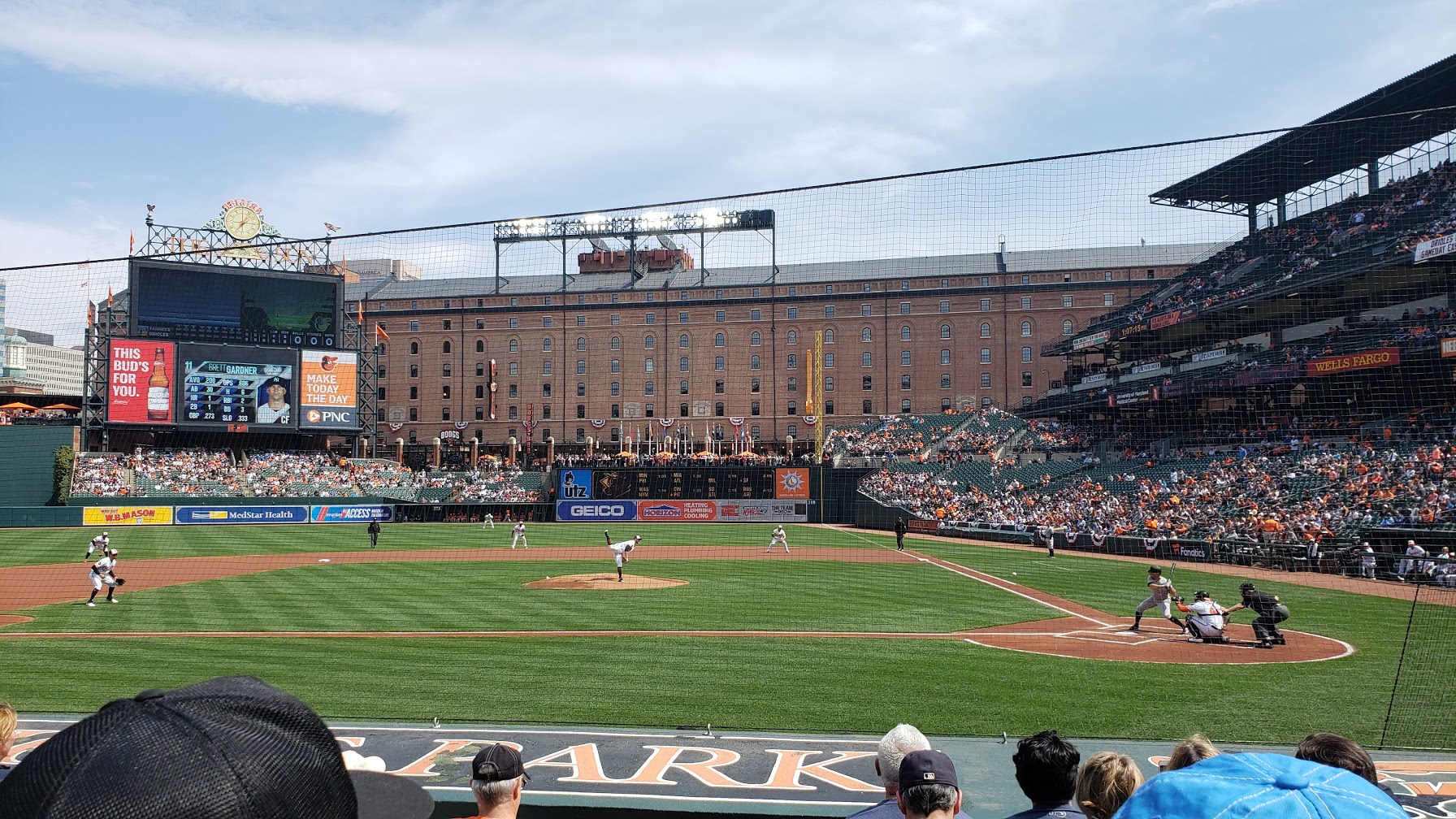
The ballpark of Major League Baseball’s Baltimore Orioles is the poster child of American nostalgia. It opened in 1992 and is widely considered the most beautiful baseball stadium in America.
The stadium’s name – Oriole Park at Camden Yards (OPACY) – comes from the beautiful old railway station that serves as its backdrop. Highlights of the beloved ballpark include a pedestrian concourse on “Utah Street” street that ushers fans between their seats and concessions in home run territory.
Make sure to grab a beer with the locals at Pickles before the game, spot Brooks Robinson’s Golden Glove nearby, scream “O” at the appropriate time of the National Anthem, and visit the Orioles HOF Statue Park in left field before the last out.
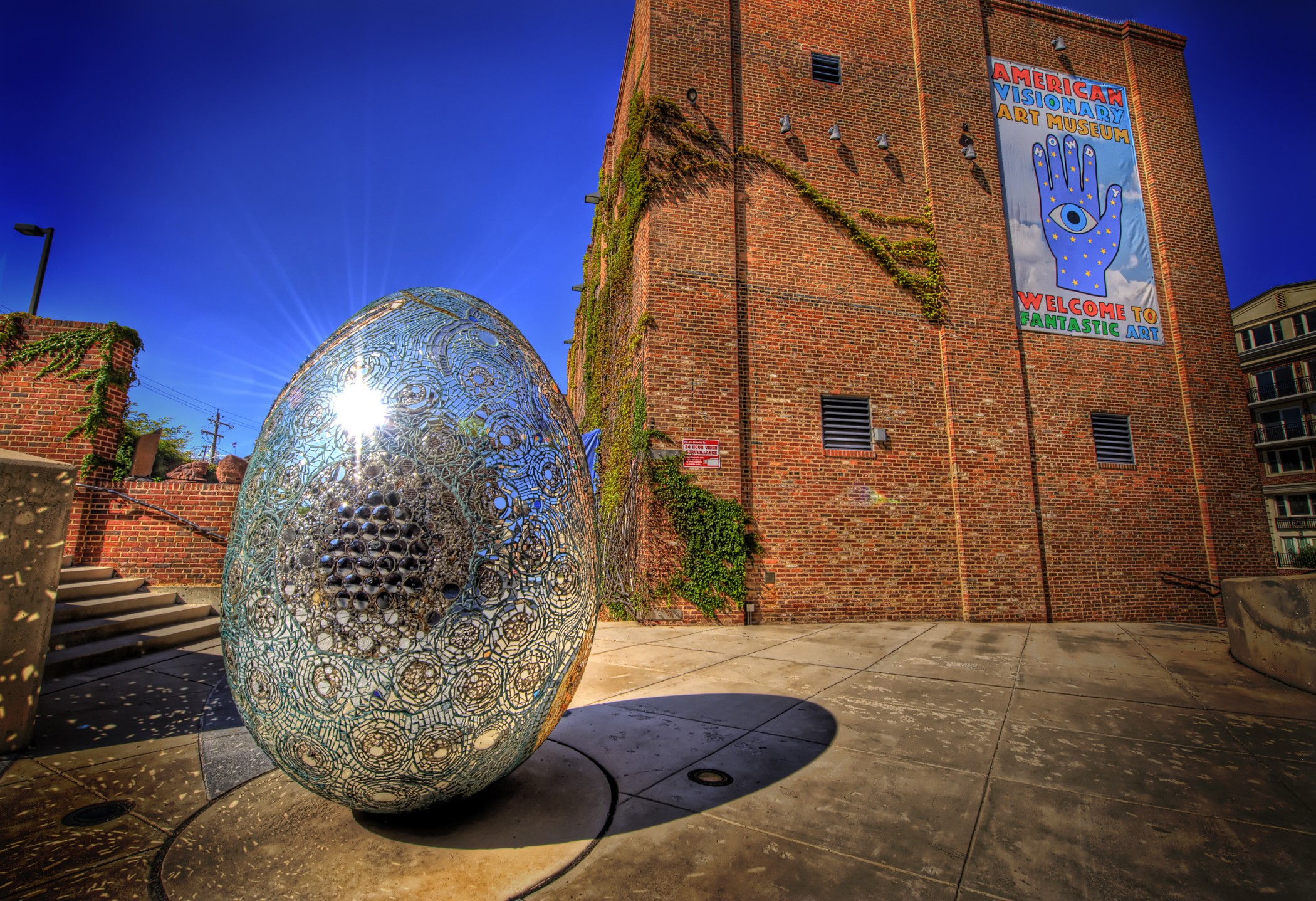
If you firmly believe that “good weird” is a thing, then you’ll love the American Visionary Art Museum. Its collection of offbeat, bizarre, and enchanting works from self-trained artists tell a story about the artists themselves, and reveal a bit of our own truths in the process.
It has a fantastic permanent collection in addition to frequently rotating temporary exhibits, making it worthy for repeat visits. The American Visionary Art Museum belongs on everyone’s Bucket List.
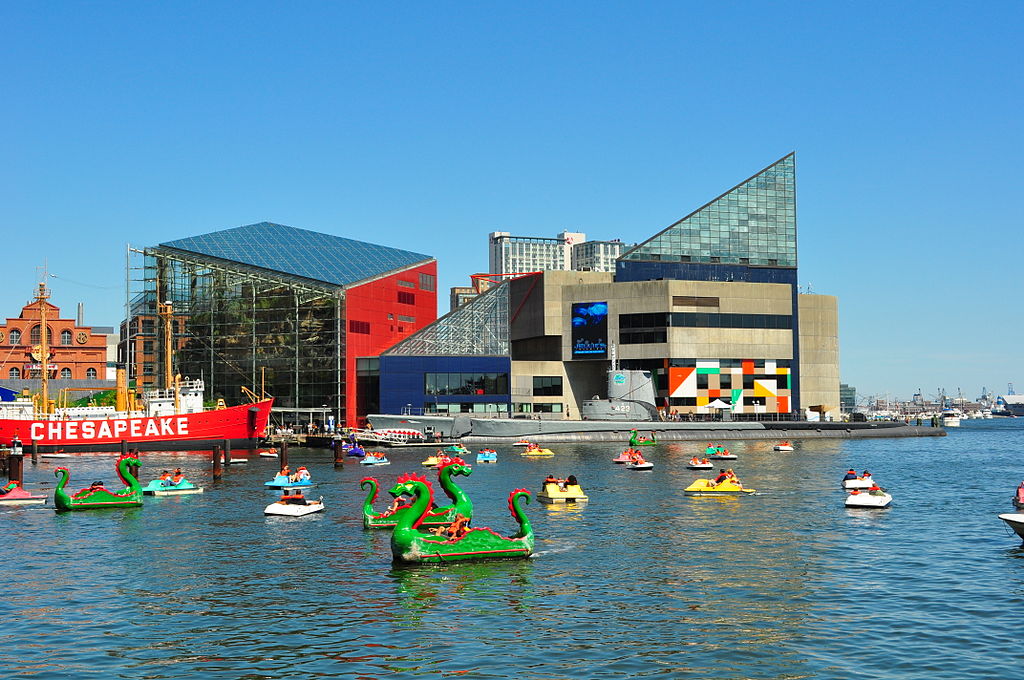
It’s the most iconic shape of Baltimore’s skyline, the crown jewel of the Inner Harbor, and undoubtedly among the best aquariums in the United States. Award winning exhibits at the National Aquarium include an Amazon River Forest, Atlantic Coral Reef, Australia: Wild Extremes, Blacktip Reef with sharks galore, Dolphin Discovery, Jellyfish Invasion, and a Living Seashore that let’s kids and adults touch some of the aquariums inhabitants.
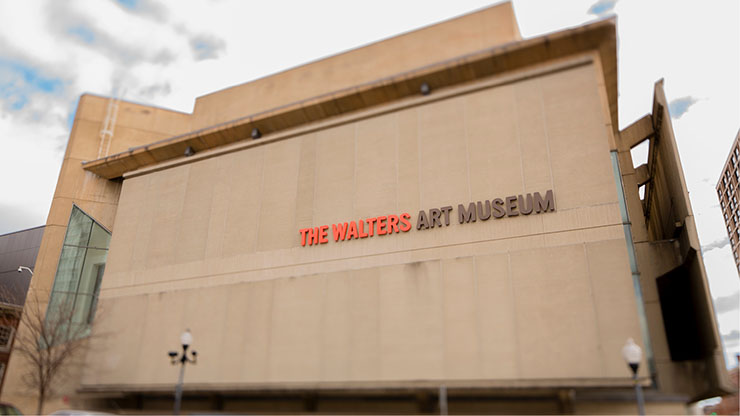
This free museum has everything from ancient 5000 BC relics to modern 21st century art.
Initially a personal collection started by father and son duo William and Henry Walters, it grew to 22,000 items by the time Henry passed in 1931. The collection was donated to the City of Baltimore “for the benefit of the public,” and the rest is history. The collection now has over 36,000 items.
Take a trip back in time as you explore Egyptian history, Byzantine art, Renaissance paintings, Medieval artifacts, and so much more. Stick around to enjoy food, drinks, and delights in Baltimore’s artsy Mount Vernon neighborhood.

The BMA is a 210,000 square foot museum housing 95,000+ objects of significant cultural performance. The collection includes 1,000 works by Henri Matisse, sits in a monumental historic building designed by architect John Russell Pope, and includes two beautifully landscaped gardens featuring 20th century sculptures.
Perhaps best of all, admission to the Baltimore Museum of Art is free.

The hub of Baltimore’s tourist industry can be found in the Inner Harbor, where the Patapsco River nestles itself between the city’s most prominent attractions.
The National Aquarium, Convention Center, Science Center, Power Plant Live, and Historic Ships can all be found around the Inner Harbor, connected by a wide pedestrian footpath that surrounds its entirety.
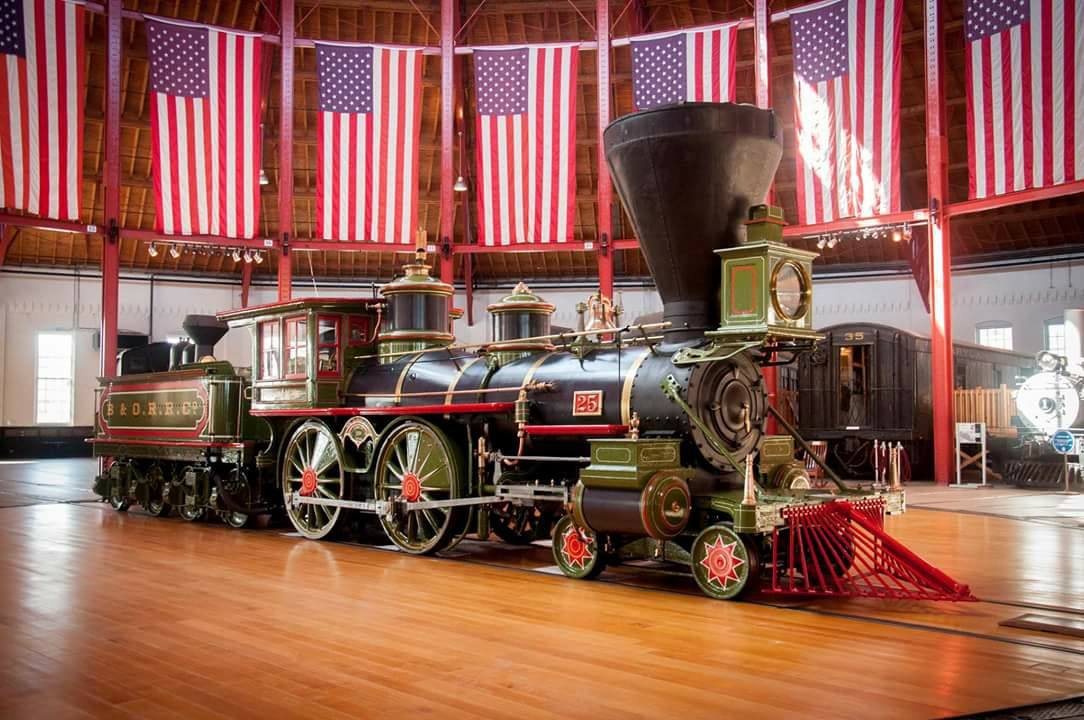
In 1829, Baltimore businessmen and engineers gathered at this site to plan the first commercial long-distance train track in the United States: the Baltimore & Ohio Railroad. Today, in partnership with the Smithsonian Museum, this National Historic Landmark has grown to become the most important railroad collection in America.
You’ll find full-size locomotives, artifacts and tools, and extensive historical story-telling that puts the importance of Baltimore’s railroading industry into context; in 1835 the American Railroad Journal called the B&O “… the Railroad University of the United States,” and nearly 100 years later it has so much more to teach.
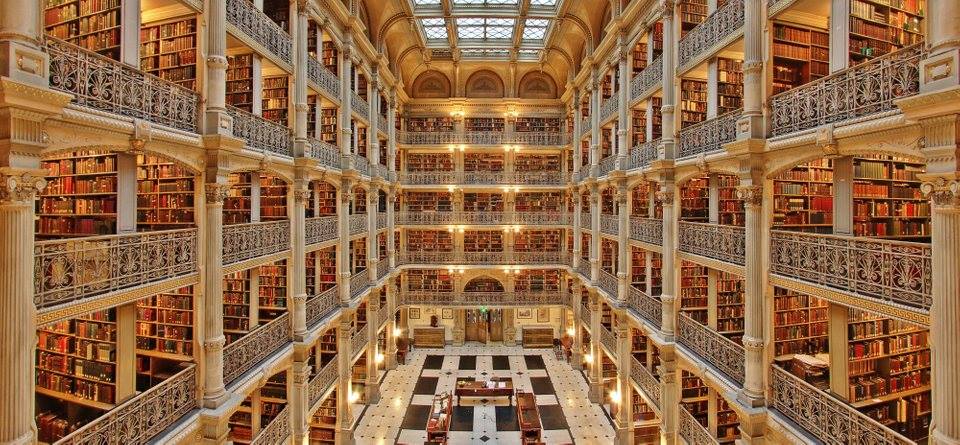
This breathtaking building looks like its straight out of a Harry Potter movie. Five tiers of ornamental cast-iron balconies give way to a gorgeous 61-foot skylight, shining the sun on stacks and stacks of old, beautiful books. The library opened in 1878, was designed by Baltimore architect Edmund G. Lind, and has 300,000+ books from the 19th century.
The library is free, open to the public, and photos are allowed- you’ll definitely want to snag a few for the gram.
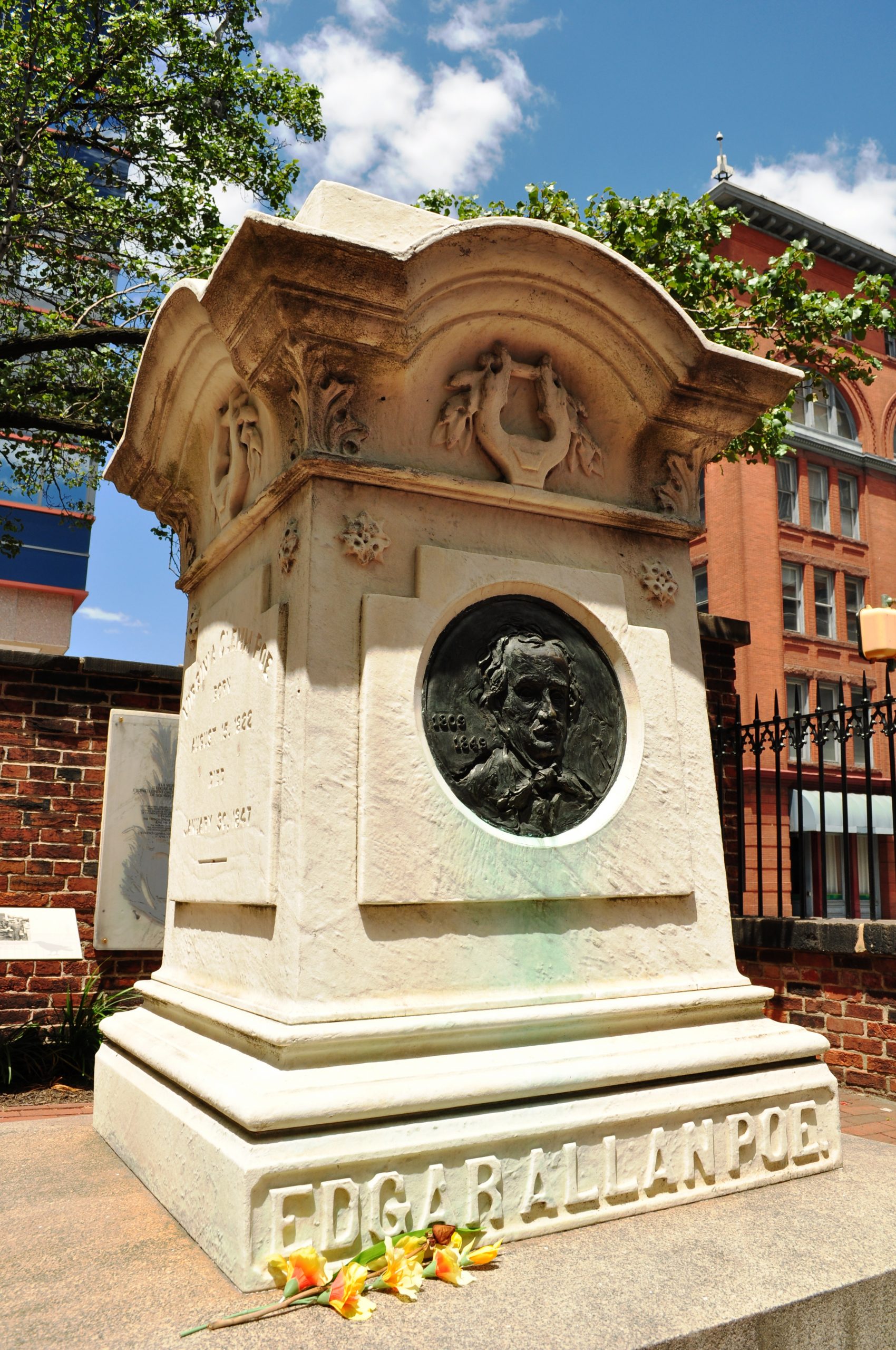
Famed poet Edgar Allan Poe met a mysterious end on October 7th, 1849 after being found delirious on the streets of Baltimore. He died at Washington College Hospital at 5AM, only 40 years old, and his cause of death is still disputed: suicide, murder, cholera, hypoglycemia, rabies, syphilis, influenza? We’ll never know, but the fascinating story reads like a true-crime murder mystery.
Initially buried in a humble plot that quickly reached a state of disrepair, supporters pushed to have his grave moved and enshrined, finally raising enough money to erect a memorial in 1875. You can see Poe’s final resting spot at Westminster Hall and Burying Grounds where he lay next to his wife, Virginia.
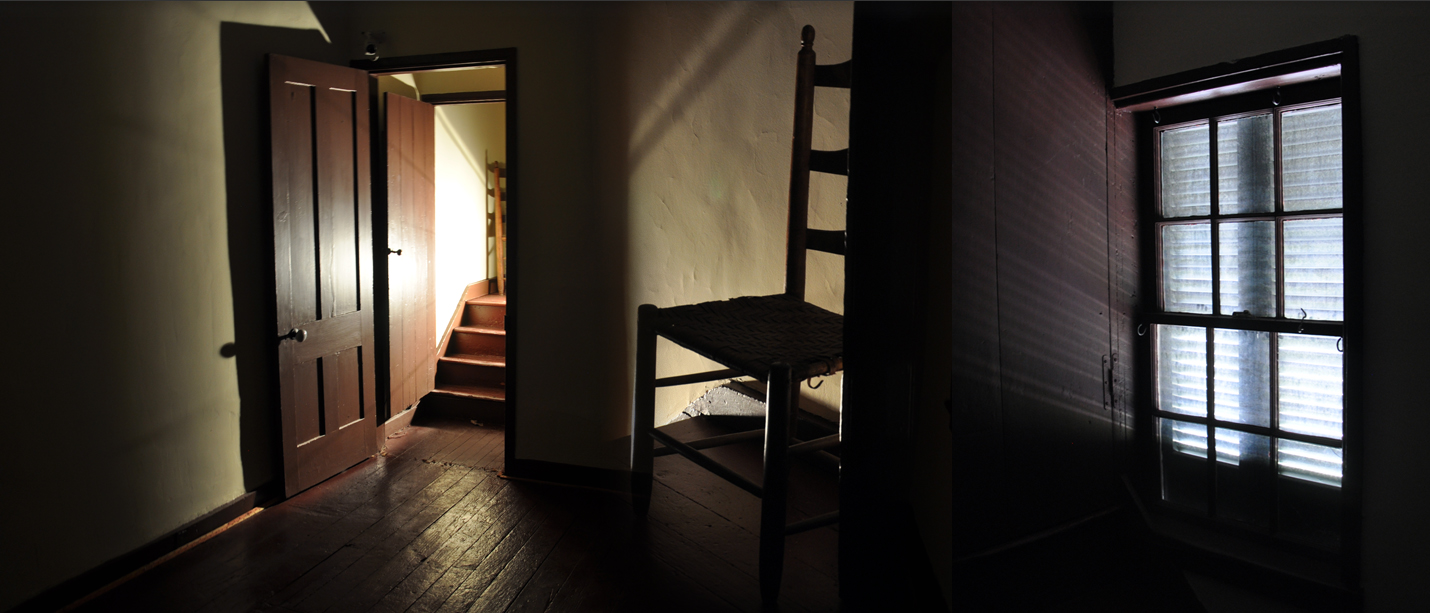
If seeing his grave and memorial aren’t enough, the Edgar Allan Poe House & Museum provide a window into the young author’s life, showcasing his personal items (writing desk, chair, etc) in a house where he actually lived.
Poe wrote at least 9 stories and 8 poems from this small house with a tight, winding staircase, and the exhibits at this National Historic Landmark tell the story of his life.
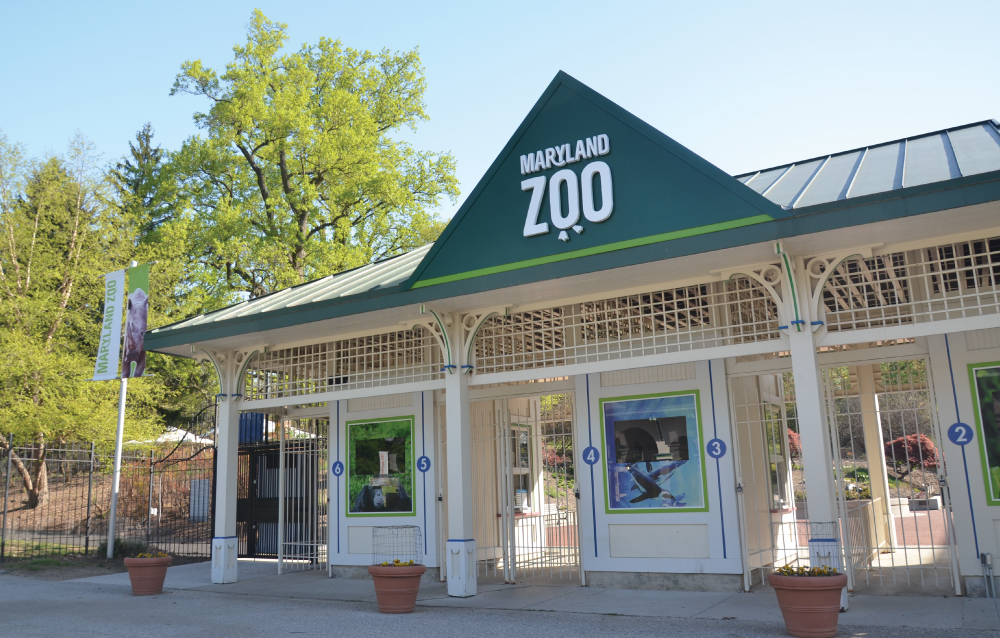
The Maryland Zoo was created in 1876, making it the 3rd oldest zoo in the country, behind only Philadelphia (1873) and Cincinatti (1874). Featuring more than 130 species across 135 acres in Druid Hill Park, visitors will be inspired and educated by the diverse collection of birds, mammals, amphibians, and reptiles.
Award-winning renovations have led to the creation of some amazing native habitats including the Penguin Coast, Polar Bear Watch, Maryland Wilderness, and African Journey featuring lions, giraffes, and elephants.
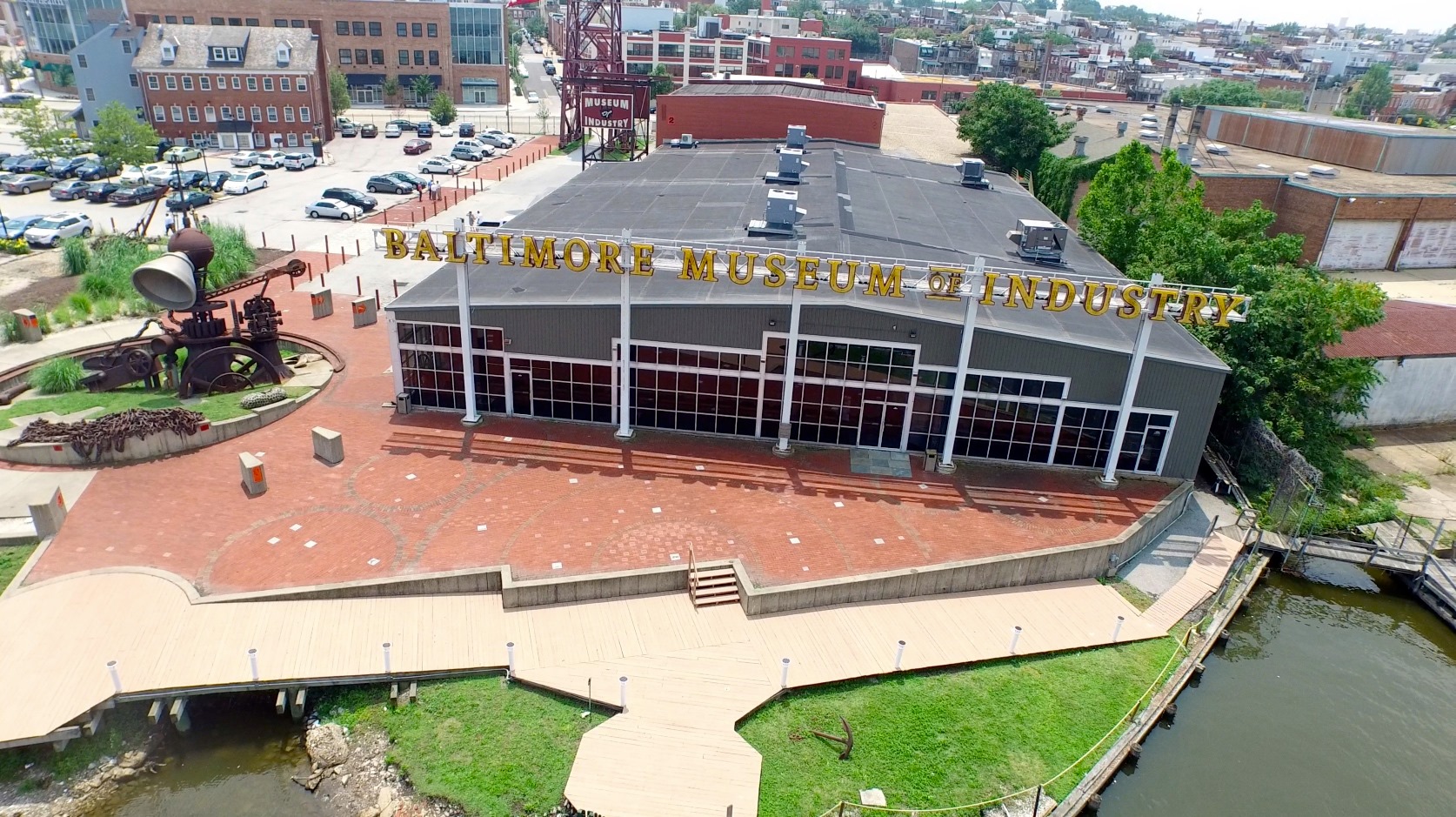
As a port city leading America’s charge through the industrial revolution, Baltimore’s contributions to the country are many. This museum celebrates the entrepreneurs and innovators that made Baltimore one of the most successful trading ports and manufacturing hubs in the world.
Exhibits include an 1865 oyster cannery, 1910 pharmacy, 1929 garment loft, and 1937 flying boat bomber. The accomplishments of Baltimoreans and Marylanders are on display at the BMI and well-worth exploring.
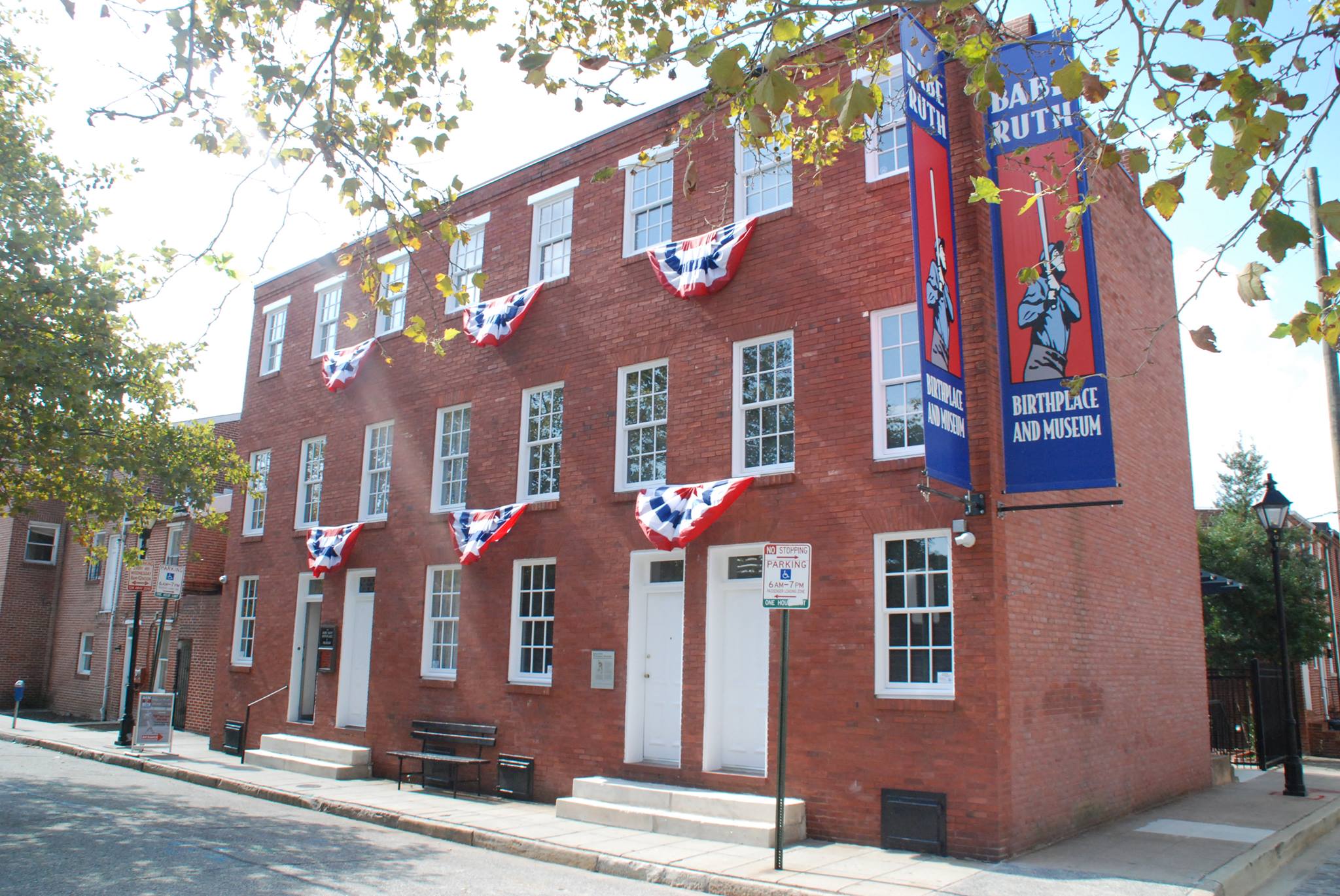
Arguably the most legendary athlete of all-time, Babe Ruth popularized the “Home Run” in baseball. Although he’s best known as the New York Yankees slugger nicknamed the Sultan of Swat, his roots are planted in Baltimore. Old Yankees stadium was the House that Ruth built, but Baltimore has the House that Built Ruth.
Located just 3 blocks from Oriole Park at Camden Yards, this museum is housed in the actual birthplace of George Herman “Babe” Ruth. Finding your way between the two is simple: a sidewalk trail of 60 painted baseballs connects them.
The museum enshrines the legacy of not only Babe Ruth, but now also showcases the historic achievements of local sports legends from the Baltimore Orioles, Baltimore Ravens, Baltimore Colts, and smaller regional and professional teams.
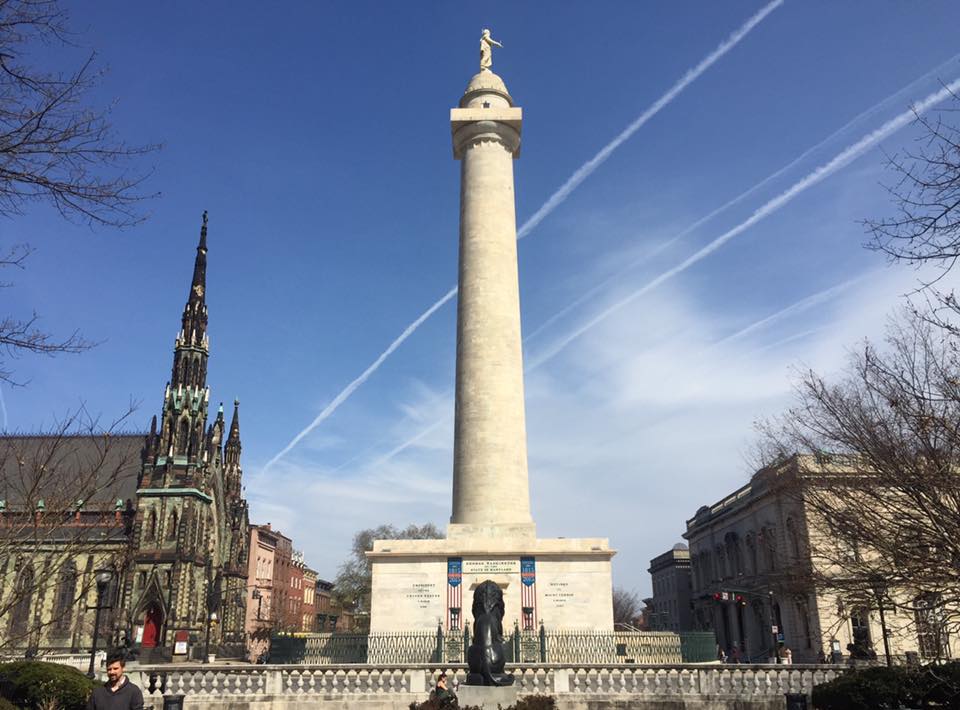
Although not as popular as the Washington Monument in Washington DC, Baltimore’s Washington Monument was actually the very first monument dedicated to the first United States President, George Washington. The two were designed by the same architect (Robert Mills).
The statue on top of the monument depicts Washington resigning his role as Commander-in-Chief of the army, an event that took place in nearby Annapolis, Maryland.
The 178 foot building has 227 steps you can climb to the top, providing a fantastic view of the Mount Vernon neighborhood it overlooks. Exhibits at the monument’s base explain the history of the President Washington and the building itself.
On the first Thursday of every December a celebration takes place to light up the monument for the holidays, followed by fireworks, and it stays lit up until after Christmas Day.
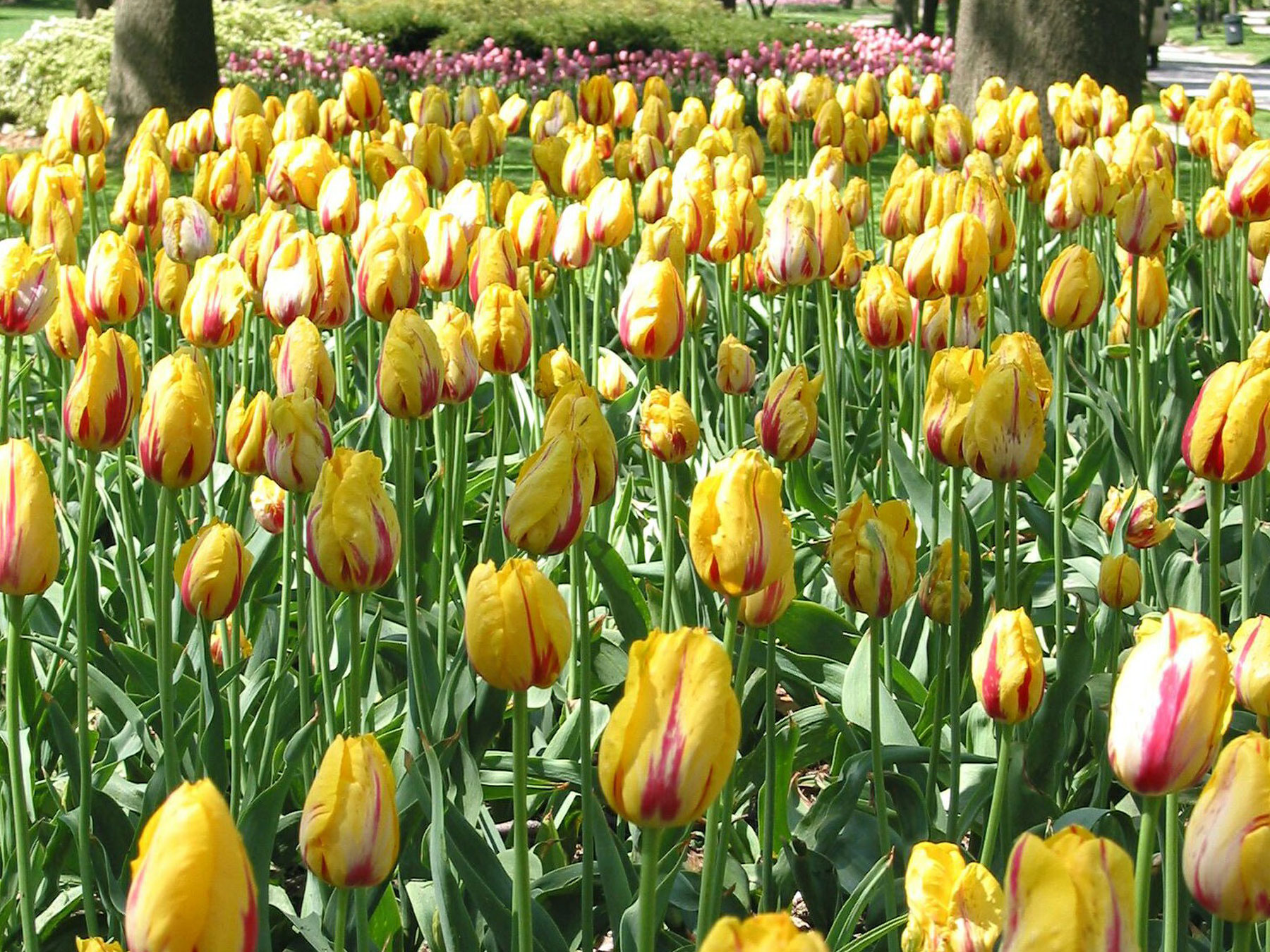
This 6-acre park is a floral paradise most popular for the 60,000 multi-colored tulips that bloom in late April. The annual Tulip Dig on Memorial Day Weekend allows community members to dig up and purchase the tulip bulbs when the season is over.
In the 1800s, this garden was part of the property owned by Baltimore Sun founder A. S. Abell, later turned into a garden its next owner and namesake: John W. Sherwood.
It makes an amazing picnic spot, but plan ahead: there aren’t bathrooms or trash receptacles!
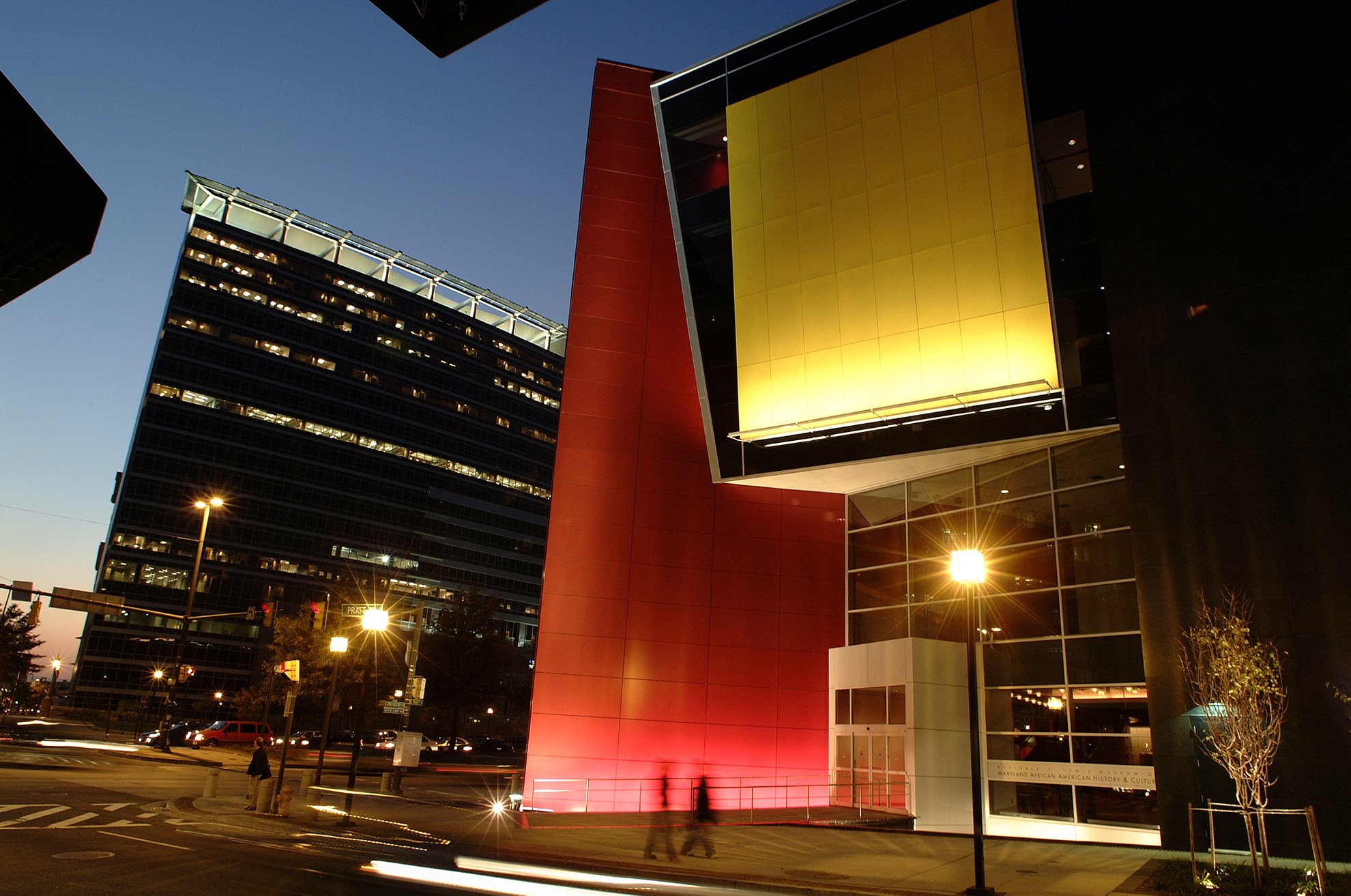
This 82,000 square foot museum celebrates the African American experience in Maryland. It’s location is both convenient and symbolic: located steps from the tourist-friendly Inner Harbor, the Reginald F. Lewis Museum sits where the Civil War began during the Pratt Street Massacre.
Explore a building full of African history, including African artifacts, slavery documents, sports memorabilia, military uniforms, photography , performances, special events, and so much more- you’ll find over 11,000 items in the Lewis collection altogether.
The museum is named after the first African American to build a billion dollar business; Reginald F. Lewis was born and raised in Baltimore, Maryland and grew TLC Beatrice company to a record-breaking $1.8 Billion revenue in 1987. Unfortunately, he would succumb to brain cancer only 6 years later at the age of only 50.
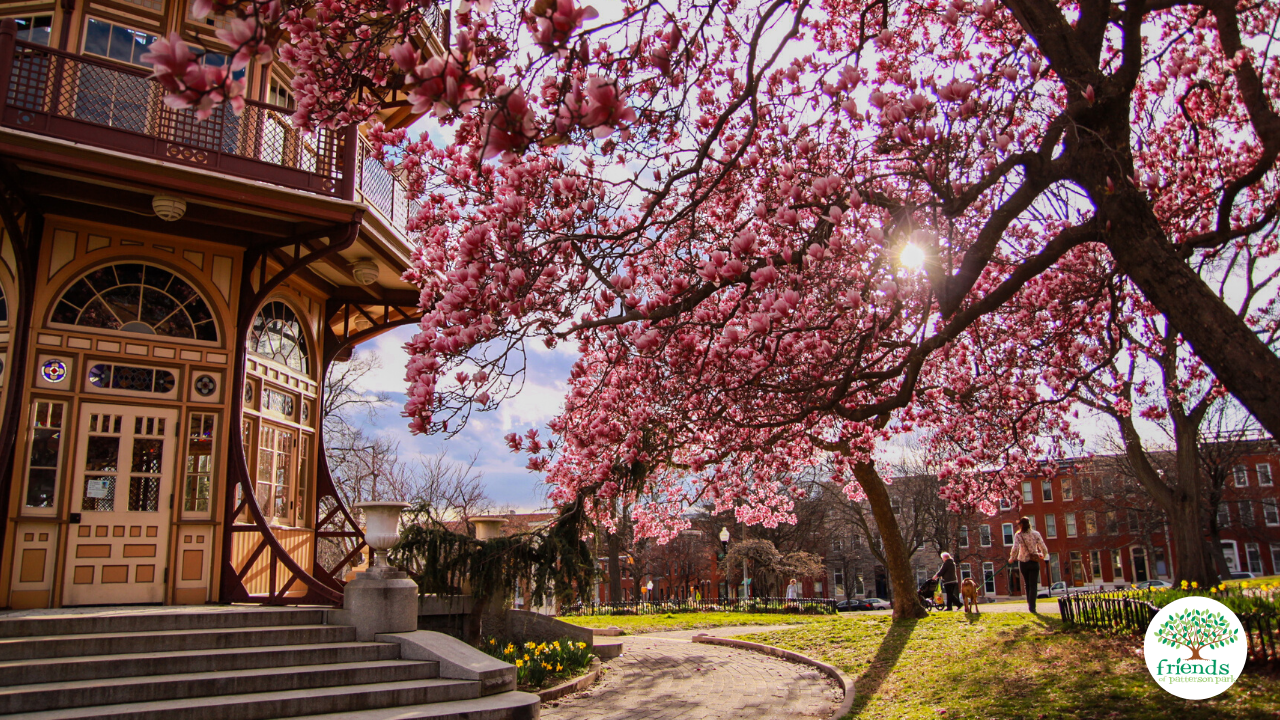
One 137 acres, Patterson Park isn’t quite the biggest park in Baltimore, but it’s often voted the best. Its sprawling landscape includes huge fields, a lake, walking/biking paths, playgrounds, athletic fields, a swimming pool, ice skating rink, and its most iconic feature: the Patterson Park Pagoda.
In the War of 1812, Patterson Park served as a key defensive position, especially in the elevated Northwest section known as Hampstead Hill. The park is named after Baltimore merchant William Patterson who donated its first 5 acres (and sold an additional 29).
The park’s most iconic feature is the 60-foot tall Patterson Park Pagoda, originally an observation tower built in 1891. It was designed by Charles H. Latrobe as a “people’s lookout tower” and has a distinctly Asian flare inspired by Latrobe’s fasciation with the Far East. It’s incredibly instagrammable, making it a popular spot among locals.
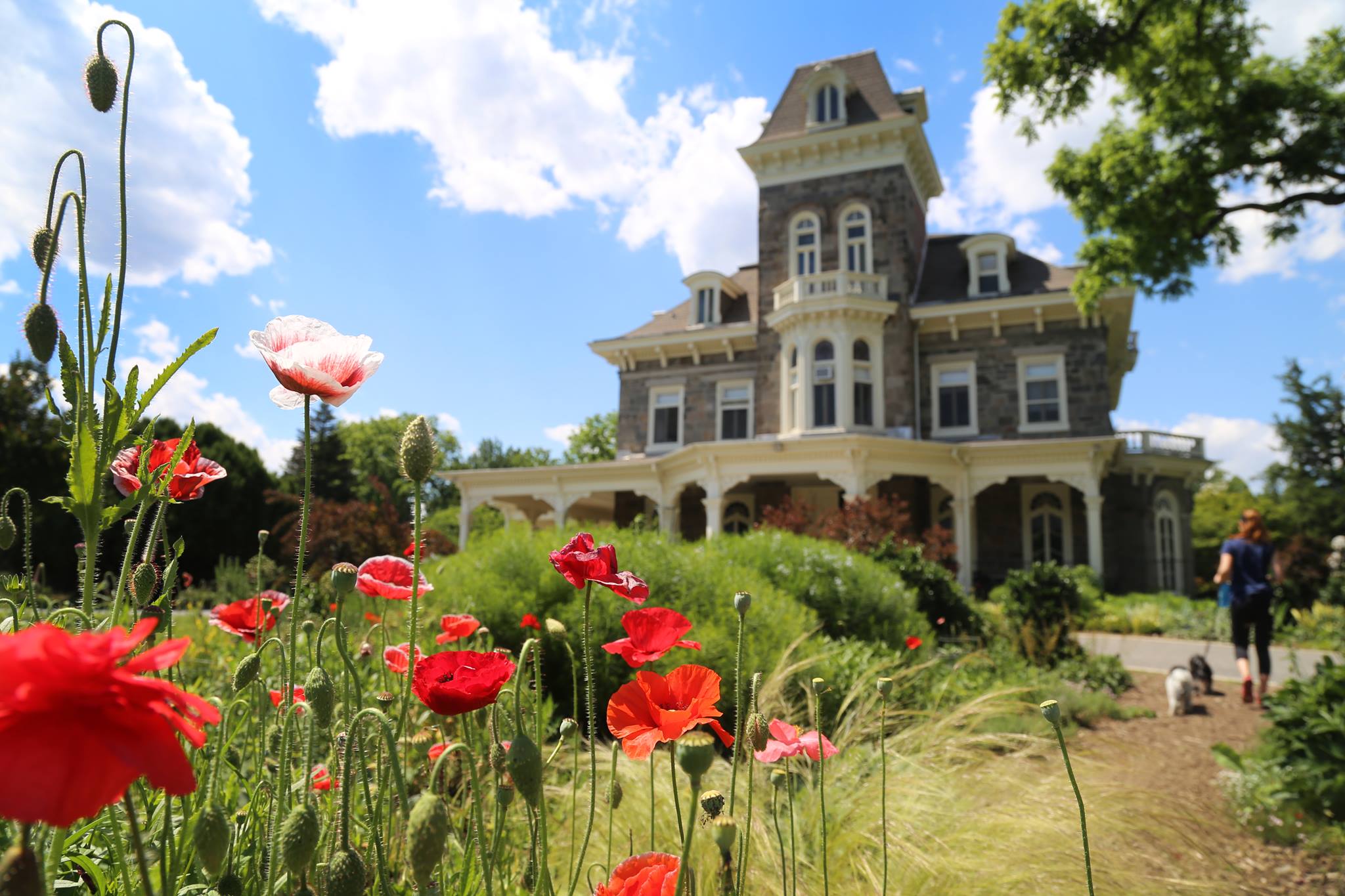
This urban oasis sits on 200 acres of natural beauty in north Baltimore. In addition to hundreds of different types of trees (an arboretum is a botanical garden devoted to trees), you’ll find wooded trails and beautiful landscaping that make Cylburn Arboretum a remarkable place worth visiting.
Construction of the magnificent mansion on the property took 25 years (1863 to 1888) and it was designed by George A. Frederick, who also designed Baltimore’s City Hall and the Patterson Park Pagoda. It’s built with locally quarried gneiss, designed in Victorian Renaissance Revival style, and is worth a visit while at the property.
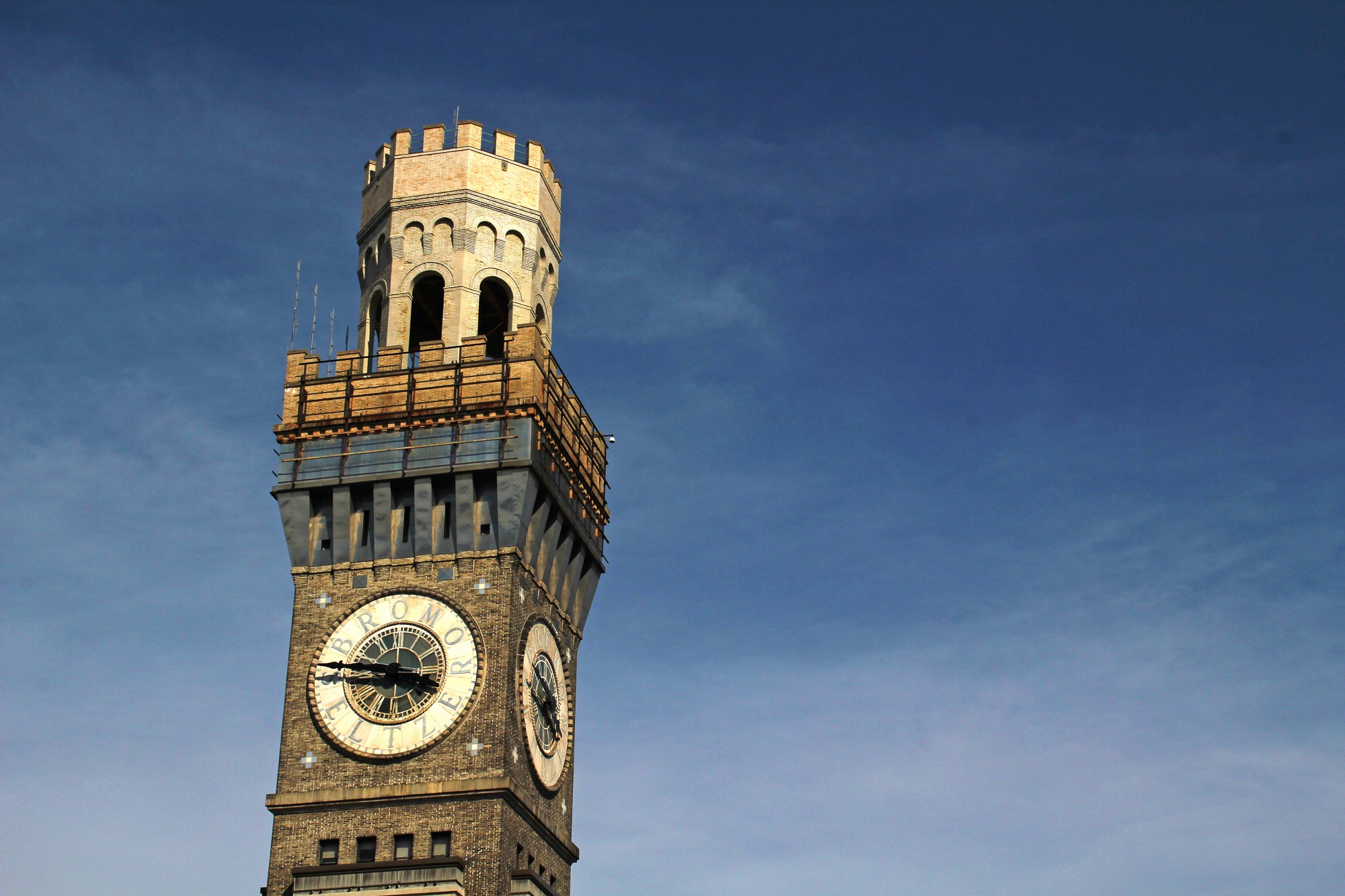
Upon construction in 1911, this 15-story clock tower was the tallest building in Baltimore, and it’s still one of the most recognizable landmarks in the city’s skyline. Originally built for Isaac Edward Emerson (the inventor of “Bromo-Seltzer” headache medicine), it is now home to artist studios such as painters, writers, videographers, photographers, and more.
You can only visit the tower on select days when they’re either giving Clock Room Tours or hosting an art event, so plan ahead!
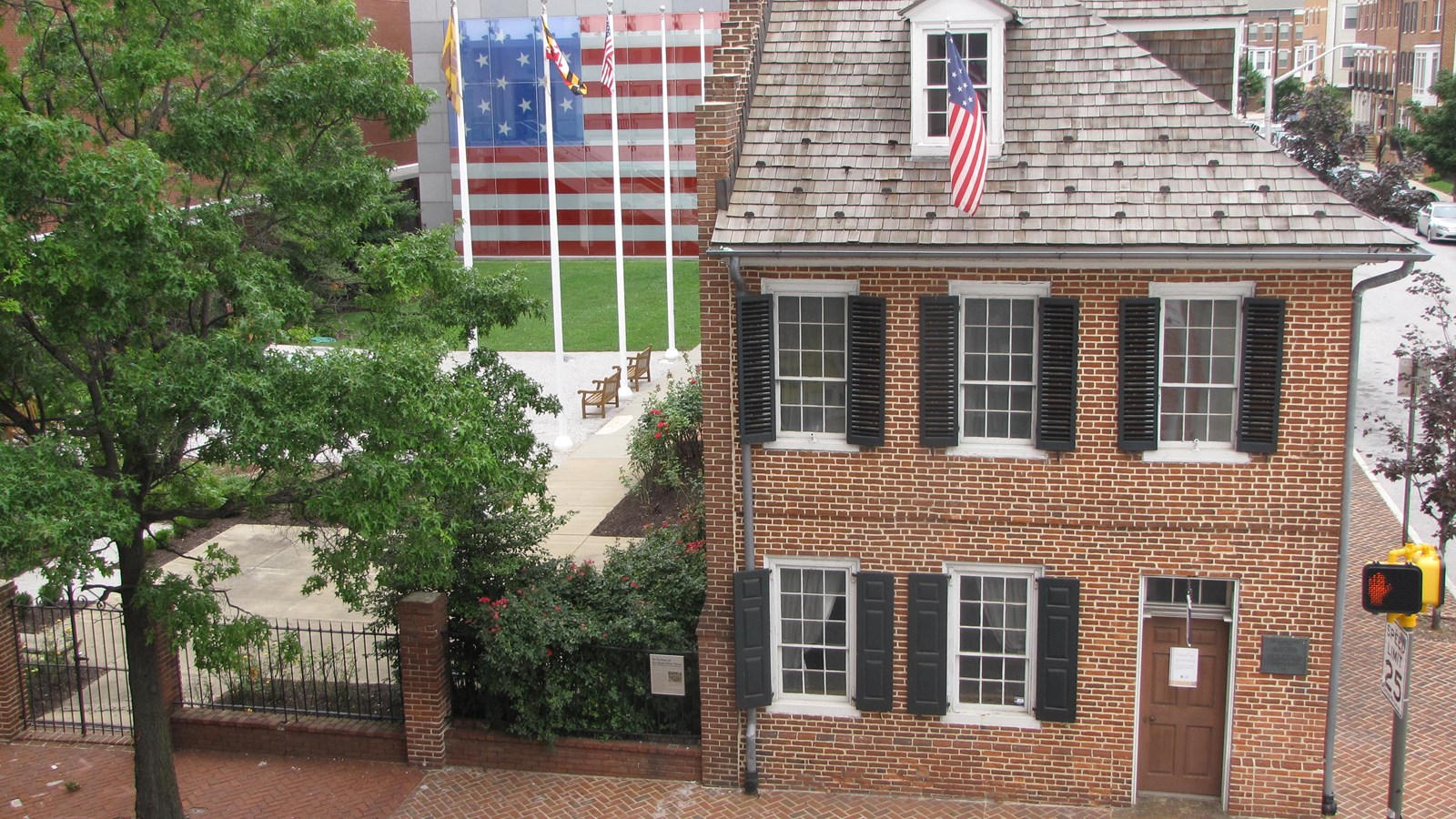
Francis Scott Key penned “The Star Spangled Banner” at nearby Fort McHenry and the flag wavering over the fort on that historic day was sewn in this very house. That’s right: the broad stripes and bright stars mentioned in the United States National Anthem were sewn on Pratt Street in Baltimore.
It was built in 1793, occupied by Mary Pickersgill in 1806, and in 1813 she crafted her famous flag. When the city fended off the British Royal Navy in 1814’s Battle of Baltimore, it was Pickersgill’s flag that was “still there”, glowing in the light of the “rocket’s red glare”.
After Mary’s death in 1857, the home served as a saloon, warehouse, post office, and bank, before finally becoming a museum that pays tribute to this important piece of American history.








